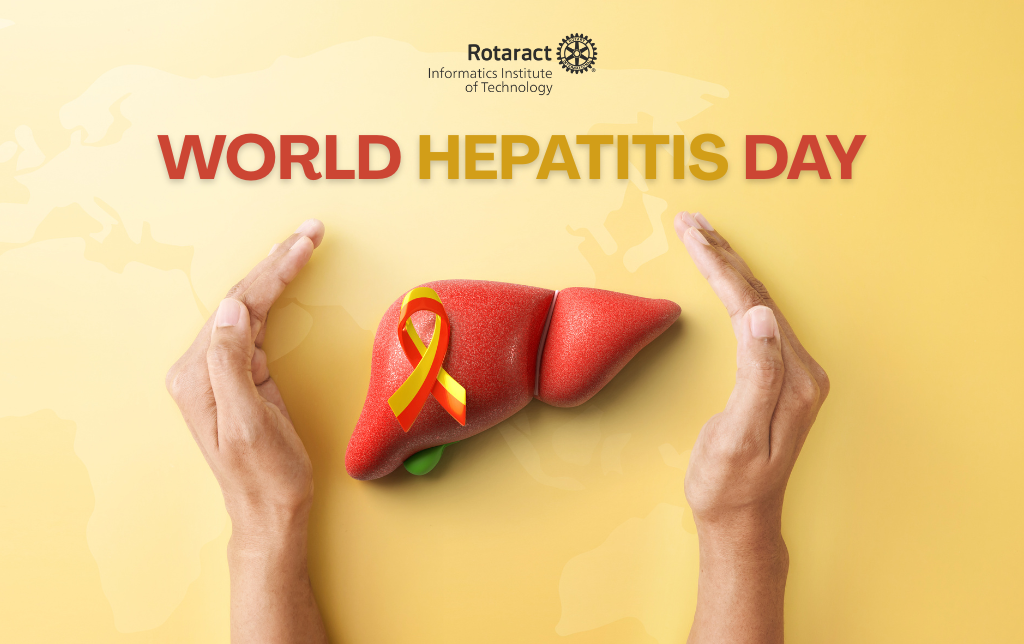
Behind the Liver: The Silent Fight Against Hepatitis
Imagine being told your liver is under attack, silently and without a warning. For many people around the world, this isn’t just a possibility, it’s a reality. Hepatitis is an inflammation of the liver, often arrives without dramatic symptoms which quietly threaten one of the body’s most essential organs. It doesn’t always scream for attention, but its effects can be devastating. Behind every diagnosis of hepatitis is a person experiencing fear, stigma, confusion and most importantly, complete unawareness.
What Really Is Hepatitis ?
Hepatitis isn’t just one illness. It’s a group of viral infections, each with its own mode of transmission, risks, and complications. Hepatitis B and C, in particular, are notorious for causing chronic liver disease, cirrhosis and even liver cancer. Yet, millions globally live with it unknowingly. Hepatitis can be symptomless for years and that’s the danger. Hiding behind fatigue, minor discomfort, or no signs at all. By the time it's discovered, the damage may have gone beyond.
Early detection and access to treatment can save lives. But too often, these come too late or not at all.
Beyond the Virus: The Emotional Weight
Hepatitis isn’t just a virus. It’s the emotional journey that comes with diagnosis. For many, it’s not just a health crisis, it’s an identity shift. There’s fear: What does this mean for my future? There’s shame: Will people judge me? And there’s silence: Who can I talk to?
People with hepatitis often carry a burden that goes beyond the physical, the stigma attached to liver disease, especially when linked to myths around drugs, alcohol, or “unhygienic living.” That stigma isolates making people afraid to speak up, afraid to get tested and afraid to seek help.
Why World Hepatitis Day Matters
World Hepatitis Day marked every year on July 28, matters so deeply. It’s not just a date on the calendar. It’s a voice for those who are often unheard. It’s a light for those living in the shadows of a disease they didn’t ask for.
This year’s theme “We’re not waiting”, is a call for action and urgency. Because people living with hepatitis can’t wait for policies to catch up. They can’t wait for access to vaccines, diagnostics and treatment to become universal. They can’t wait for public awareness to catch fire.
The Red and Yellow Ribbon: A Symbol of Hope
The red and yellow liver-shaped ribbon stands as a quiet but powerful symbol. It says “We see you. We believe you deserve better. We’re standing with you”.
Like other awareness symbols, this ribbon does more than represent a disease. It represents dignity, resilience, and the global will to end hepatitis. It’s a promise that we’re working toward a world where no one suffers in silence and no life is cut short by something we know how to prevent, diagnose, and treat.
After Diagnosis: Life Still Goes On
For those who survive the silent battle, life doesn’t just snap back into place. There may be ongoing treatment. Lingering fear of liver damage. Worries about relapse. And above all, the emotional fatigue of managing a chronic illness that people around them might barely understand.
But there’s strength. Survivors of hepatitis are walking examples to the power of knowledge, early detection, and community support. Their stories are proof that this disease is beatable and that healing goes beyond medication.
Stories That Move Us
Initiatives around the world are helping the voices affected by hepatitis. From public testing campaigns to survivor stories, every action adds to the global fight.
Whether it’s a mother in South Asia getting her child vaccinated, a young man in Africa finally getting treatment, or a student in Sri Lanka organizing an awareness drive, these stories remind us that change is possible when awareness becomes action.
A Day to Care, A Movement to Join
World Hepatitis Day isn’t just about learning the facts. It’s about realizing that behind every story is a real person, a real life, a real future worth fighting for.
We help others take the first step toward testing, treatment, or simply hope by talking about it, breaking the silence and spreading awareness . Because no one should have to battle hepatitis alone. Not when we have the tools. Not when we have science. And definitely not when we have each other.






